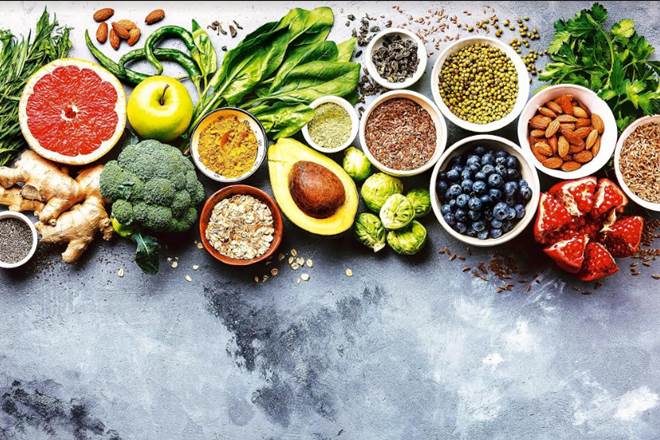Snack on licorice? Watch a scary movie?

Helen Foster@Differentville bodyandsoul.com.au APRIL 29, 2020 11:00AM
Given current circumstances and with winter just around the corner, try these new tricks to keep sickness at bay.
‘How to boost your immunity’ is one of the most searched terms on the internet, given the fact that Australians are heading into winter and battling the current coronavirus health crisis.
But instead of just dosing up on vitamin C, eating your greens and wearing warm clothes, there are actually a myriad of lesser known ways you can boost your immunity.
Here are 15 proven ways.
1. Eat more yoghurt
Aside from the buzz around their effect on gut health, fermented foods can also get your immune system buzzing. The process that turns milk into yoghurt causes the production of lactic acid bacteria, a substance that researchers have found stimulates immune activity in your body.
2. Watch a scary movie
You know that fright you get when the scary clown jumps out of the dark in a horror movie? Turns out it’s good for your health. When researchers took blood samples from people watching a horror, they found the levels of germ-busting white blood cells increased.
It’s thought that adrenaline released when you’re scared causes your body to go into fight-or-flight mode — and your immune system, which doesn’t know you’re just on the couch, turns on in case you’re injured.
Like what you see? Sign up to our bodyandsoul.com.au newsletter for more stories like this.

Image: iStockSource:BodyAndSoul
3. Chew your food well
Not only will chewing make it easier for your body to digest the nutrients in your food, the act of chewing also releases ‘Th17’ immune cells in your mouth. These cells act as one of your body’s first defences against infection, protecting against harmful pathogens.
4. Turn your shower to cold
When researchers in Amsterdam asked people to take cold showers for 30 days they reported a 29 per cent drop in how often they got sick. “Cold increases levels of your white blood cells, the soldiers of your immune system,” explains Laura Hof, from The Wim Hof Method, a program that promotes daily cold exposure.
“The first few times can be a challenge as your body gets used to the cold, so start by just turning your shower to cold for the last five to 15 seconds of your normal shower.
And just expose yourself to the water from the neck down — leave your head out.”
5. Get on a group chat
You may not be able to see your friends in person right now, but don’t drop contact completely — the genes that control the part of your immune system that fights viruses don’t work as effectively if you feel lonely, say US scientists.

Try video calling friends and family. Image: iStockSource:BodyAndSoul
6. Master the basics
“Avoiding infection is a race between replicating microbes and your immune system’s response to them,” explains immunologist Professor Cassandra Berry. “A daily practise of keeping calm, sleeping well, exercising, maintaining hydration and good nutrition will assist your body in fighting these invaders in the best way it can.”
7. Snack on licorice
“Licorice’s main active ingredient, glycyrrhizin, has many effects that are useful for supporting the immune system,” says Australian Nutrition Centre head practitioner James Jensen. “One is that it blocks the ACE-2 receptor in the airways that some viruses, including COVID-19, use to enter the cells.” Avoid if you have high blood pressure, are pregnant or are breastfeeding, though.
8. Put down the salt
You already know it’s bad for your blood pressure, but a new German study suggests that too much salt also weakens the immune system by reducing the ability of cells called granulocytes to destroy bacteria. Just one more reason to stay within the recommended 5g a day (that’s about one teaspoon), says researcher Dr Christian Kurts.

Image: iStock.Source:BodyAndSoul
9. Get outside
Just five to 10 minutes in the garden or on your balcony can rev up your immunity. As well as the sunlight helping in the formation of vitamin D, “blue light in sunlight also triggers a chemical reaction in protective T-cells that stimulates their movement”, says pharmacology Professor Gerard Ahern, who discovered this extra link between sunlight and immunity.
10. Eat more mushrooms
While white foods tend to be demonised in the quest for good health don’t tar them all with the same brush. Natural, unprocessed white foods have many positive attributes. Mushrooms in particular have been shown to support immunity in a number of trials. And you don’t need expensive ones to get results either — in one US trial, just four button mushrooms revved up the activity of natural killer cells that attack viruses.

Mushrooms are delicious raw, too. Image: iStock.Source:BodyAndSoul
11. Smear Vegemite on your toast
Tom Hanks was on to something! A Victoria University study links eating Vegemite to lower levels of stress and anxiety (well-known immunity sappers). “The high levels of B vitamins found in Vegemite may explain why it has a positive impact on mental health,” says nutritionist Rick Hay. “Vitamin B12, for example, supports the normal functioning of your nerve cells, while B3 plays a crucial role in the synthesis of serotonin, which helps with anxiety.”
12. Look on the bright side
It may seem a little tricky right now, but research shows that summoning up positive feelings about the future will trigger a temporary bump in your immunity. It can be as simple as planning some fun things to look forward to when lockdown is over, or doing just one thing a day to keep your spirits up (our positivity planner on page 15 will help with this).
13. Tone down the HIIT
While it has many benefits, too much high-intensity exercise can put your immune system on the back foot. In fact, a Brazilian study found that two days of back-to-back HIIT exercise compromised the immune system, leading researchers to suggest at least one rest day — which can also be low-volume or low-intensity sessions — between workouts.

Sawp HIIT for a low-intensity workout. image: iStock.Source:BodyAndSoul
14. Try self-hypnosis
Poor sleep can knock your immune system, so anything that improves sleep should enhance it. Using self-hypnosis as a sleep aid may create a double whammy as studies at the University of Zurich have found it specifically increases the amount of slow-wave sleep you get, which is the stage at which your immune system restores and regenerates. Try an app like Relax & Sleep Well Hypnosis (free on iTunes and Google Play) to get you started
15. Take care in the AM
Because infection happens when the virus replicates faster than your body can fight it off, you may want to be extra diligent about your hygiene in the morning. Researchers from the UK’s University of Cambridge found viruses multiply 10 times faster in the morning, which means if everything else is equal and you’re exposed to a bug at night or in the morning, it’s more likely to take hold in the morning.

Stay calm and relaxed in the mornings. Image: iStockSource:BodyAndSoul



